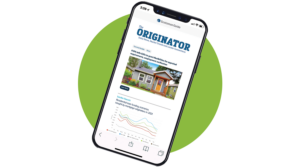Introduction
The hospitality industry thrives on ambitious investments, with each new property requiring robust financing. For mortgage brokers, hospitality property financing represents a unique opportunity to broaden their portfolio and serve a dynamic sector. In this article, we will explore various financing options, key considerations, and strategies for mortgage brokers to help clients secure funding for hospitality properties. Leveraging tools like the Lender Search by Scotsman Guide can also be invaluable in finding niche lenders with the right experience for financing hospitality properties.
Understanding Hospitality Property Financing
Before diving into financing options, it’s crucial to understand what constitutes a hospitality property. Typically, these include hotels, resorts, inns, motels, and bed-and-breakfast establishments. Financing these types of properties requires a specific approach, considering factors like operational complexities, location, and revenue seasonality.
Types of Financing Options for Hospitality Properties
- Bank Loans
Conventional bank loans offer competitive rates but often require a solid credit score and a sizable down payment. - SBA Loans
Backed by the Small Business Administration, SBA loans are accessible options for those new to hospitality, though they involve extensive documentation. - Bridge Loans
Ideal for short-term needs, bridge loans provide temporary financing, typically until long-term financing can be secured. - CMBS (Commercial Mortgage-Backed Securities)
CMBS loans package commercial real estate loans into securities sold to investors, offering flexibility in terms and conditions. - Mezzanine Financing
This hybrid loan combines debt and equity financing, appealing to borrowers seeking to minimize upfront capital. - Equity Financing
For larger projects, equity financing allows owners to raise funds by giving investors a stake in the property.
Key Challenges in Financing Hospitality Properties
Financing hospitality properties presents unique challenges, such as market volatility and seasonal revenue variations. Brokers should also be mindful of operational risks associated with management shifts and competition. Utilizing Lender Search by Scotsman Guide can streamline the process of finding lenders who understand these specific challenges and can offer flexible loan terms.
Eligibility Requirements for Hospitality Property Financing
Lenders typically assess credit scores, experience in hospitality management, and business plans when reviewing hospitality financing applications. Brokers should guide clients through eligibility criteria, including down payment requirements and acceptable collateral.
Steps to Secure Financing for Hospitality Properties
- Assess Property Value and Location
Analyzing the property’s market value and location viability is essential for predicting its success and attracting lenders. - Prepare a Strong Business Plan
A solid business plan showcasing revenue projections, marketing strategy, and management expertise can be a game-changer. - Choose the Right Financing Option
Selecting the appropriate loan type aligns the financial strategy with the client’s goals, enhancing their chances of approval. - Gather Necessary Documentation
Ensure all legal, financial, and personal documentation is prepared, making the application process smoother. - Submit the Application and Negotiate Terms
Finally, submit the application and negotiate terms that support long-term profitability.
Understanding Loan Terms and Conditions
Mortgage brokers must help clients understand essential loan terms like interest rates, Loan-to-Value (LTV) ratios, amortization periods, and any fees or penalties. Clarity in these areas is vital to securing financing that aligns with the property’s long-term objectives.
Preparing a Solid Business Plan for Hospitality Properties
A well-crafted business plan is often the backbone of successful financing. It should include financial projections, marketing strategies, and an operational roadmap. Brokers should assist clients in detailing every facet of the business to assure lenders of the property’s profitability.
How a Mortgage Broker Can Help
Best Practices for Mortgage Brokers in Hospitality Financing
- Conduct Thorough Market Research
Market trends and property location insights can vastly improve financing outcomes. - Understand Client Needs and Goals
Each client has specific objectives; understanding them helps in tailoring the financing approach. - Utilize Lender Search by Scotsman Guide to Find Suitable Lenders
Leveraging Lender Search by Scotsman Guide can connect brokers to lenders experienced in financing hospitality properties, ensuring they find the best financing match for each client’s unique project needs.
Alternative Financing Options for Hospitality Properties
If traditional loans are unattainable, mortgage brokers can consider alternative options like private lenders, crowdfunding, and Real Estate Investment Trusts (REITs), all of which provide flexible avenues for property financing.
Evaluating Risks and Mitigating Strategies
Analyzing risks, such as economic downturns or shifts in tourism trends, helps brokers and clients devise risk mitigation strategies. Diversifying revenue sources and investing in resilient markets are practical risk management steps.
Benefits of Working with Specialized Lenders
Specialized lenders offer industry insights and flexible terms suited to hospitality properties. Lender Search by Scotsman Guide makes it easy to identify lenders with expertise in hospitality financing, which can enhance approval odds and streamline the entire process.
Common Mistakes to Avoid in Hospitality Property Financing
Avoiding common pitfalls—such as inadequate planning, selecting unsuitable loan types, or underestimating operational costs—can dramatically enhance financing success.
Trends in Hospitality Financing
Recent trends reveal a growing emphasis on sustainable properties and technology integration. For brokers, staying updated with these trends can provide competitive advantages when negotiating loan terms.
Conclusion
Securing financing for a hospitality property is a complex, multi-faceted process, but mortgage brokers equipped with the right knowledge can guide clients toward successful outcomes. By understanding various financing options, preparing robust business plans, and building strong lender relationships, brokers can help their clients secure favorable financing for their hospitality ventures.


